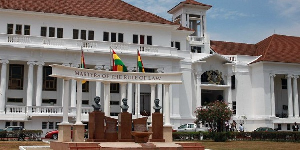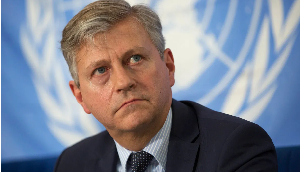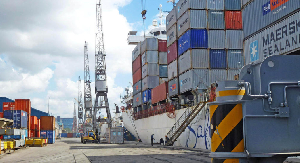The Office of the Administrator of Stool Lands (OASL) would spend $70,000 on the implementation of the second phase of the Land Administration Project (LAP II) in the country.
The six-year project expected to begin this year, would consolidate and strengthen rural and urban land administration and management systems, for efficient and transparent land service delivery.
This was announced by Mr Geoffrey Osafo-Osei, Brong-Ahafo Regional Stool Lands Officer, when addressing a day’s workshop on LAP II at Abesim, near Sunyani on Wednesday. The workshop was organised by the Regional Secretariat of OASL in collaboration with the Regional Coordinating Council.
It was attended by Municipal and District Chief Executives, Coordinating Directors, Finance Officers and Presiding Members from the 27 Municipal and District Assemblies in the Region.
It sensitised the participants and other key stakeholders in the land administration processes to appreciate the various reforms being undertaking in land administration as part of the implementation of the second phase of the Ghana Land Administration Project).
The workshop also afforded the OASL the opportunity to educate the participants about their roles under the LAP as well as the best practices in the generation and use of stool lands revenue. Mr Osafo-Osei explained that under LAP I, 37 Customary Land Secretariats (CLSs) were established nationwide to assist traditional authorities and other land owners in the administration of land at the local level.
Under LAP II, the establishment of CLSs had been mainstreamed into activities of the OASL and would be on demand-led basis. The CLSs were tasked to keep and maintain accurate and up to date records of land dealings in localities as well as provide information about the land owning community to the public.
Mr Osafo-Osei said LAP II encompasses strengthening the policy, legal and regulatory framework for land administration, decentralisation and improving business and service delivery processes as well as improve maps and spatial data for land administration and human resource development and project management.
He explained that under LAP II, some policies of land-related fees and taxes would be reviewed in the formulation of policies on fees and taxes which are conducive to the financial sustainability of the system. To maximise project outcome, Mr Osafo-Osei said LAP II would focus on mapping primarily in Greater Accra, Ashanti, Western and Northern Regions.
Mr Justice Samuel Adjei, Deputy Regional Minister, asked the Municipal and District Assemblies to devise ingenious ways of raising funds internally to facilitate accelerated national development.
He said the over reliance of the assemblies on stool lands revenue, and District Assemblies’ Common Fund for development is not the best. Mr Adjei called for proactive steps to intensify the revenue mobilisation drive. He appealed to the assemblies to utilise their share of the stool revenues judiciously towards the development of their areas.
He noted that land administration system in the country and its resultant revenue mobilisation agencies could function more effectively when there is maximum cooperation, consultation, collaboration and information sharing relative to their mandate as stakeholders in the land sector.
Mr Adjei entreated the stakeholders to consistently consult key institutions to influence and improve policies in mining, forestry and land administration to promote sustainable resource mobilisation and management.
Business News of Thursday, 5 September 2013
Source: GNA
Second phase of LAP to cost $70,000













